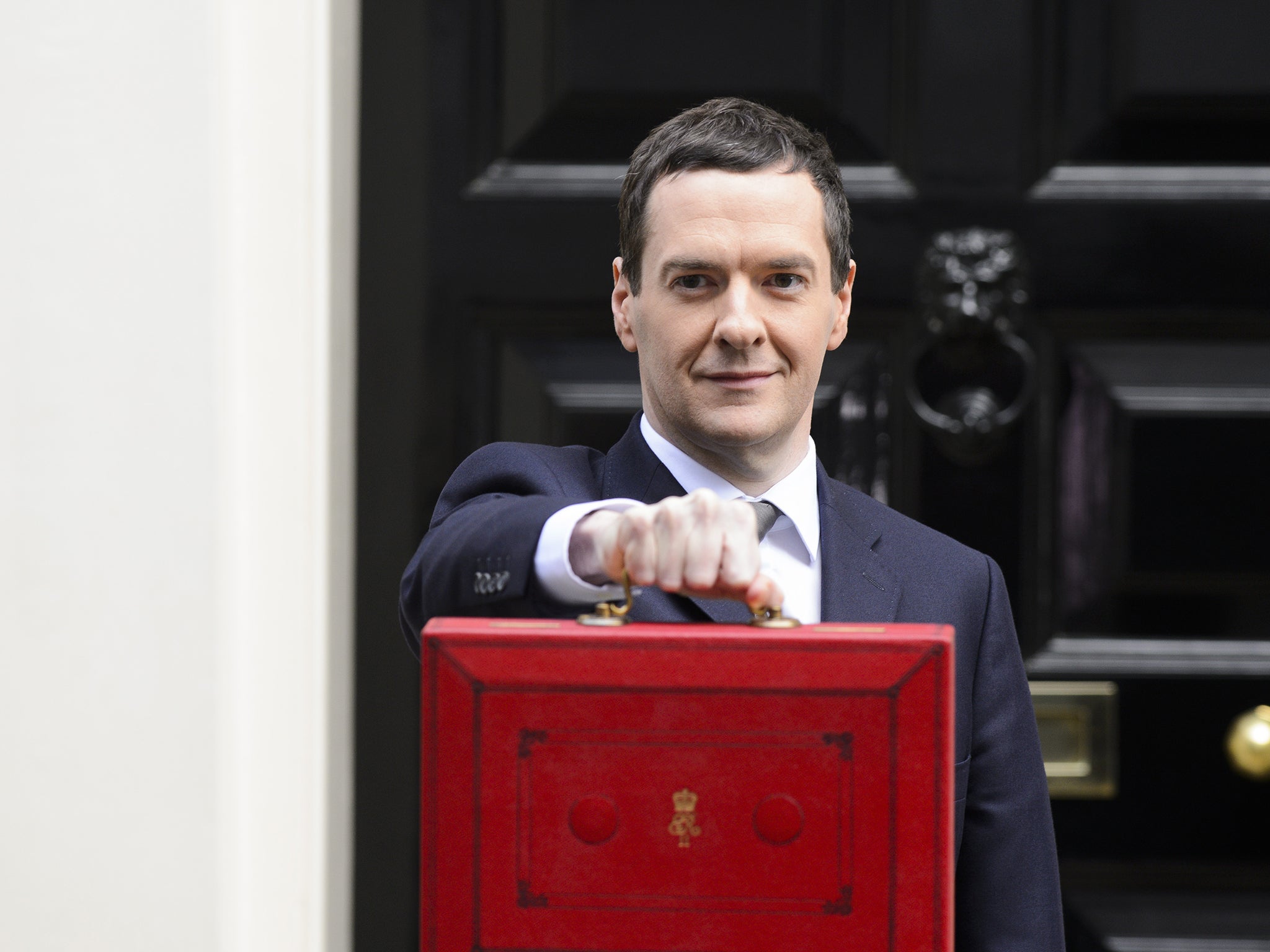Budget 2015: George Osborne to raise levels for inheritance tax in first Tory-only Budget
A 'family homes allowance' is expected to be introduced by the Chancellor

Your support helps us to tell the story
From reproductive rights to climate change to Big Tech, The Independent is on the ground when the story is developing. Whether it's investigating the financials of Elon Musk's pro-Trump PAC or producing our latest documentary, 'The A Word', which shines a light on the American women fighting for reproductive rights, we know how important it is to parse out the facts from the messaging.
At such a critical moment in US history, we need reporters on the ground. Your donation allows us to keep sending journalists to speak to both sides of the story.
The Independent is trusted by Americans across the entire political spectrum. And unlike many other quality news outlets, we choose not to lock Americans out of our reporting and analysis with paywalls. We believe quality journalism should be available to everyone, paid for by those who can afford it.
Your support makes all the difference.Most family homes will be exempt from inheritance tax under a plan to be announced by George Osborne in his Budget next Wednesday.
The Chancellor will implement a flagship pledge in the Conservatives’ general election manifesto to ensure that people can hand down their assets to their children or grandchildren when they die.
At present, inheritance tax is charged at 40 per cent above a threshold of £325,000 for an individual and £650,000 for married couples and civil partners. Mr Osborne is expected to bring in a “family homes allowance” that would raise the threshold to £500,000 for an individual and £1m for couples. It would take effect in April 2017 at a cost of £1.05bn a year, to be funded by reducing tax relief on pensions for people with incomes over £150,000 a year.
Mr Osborne, the then shadow chancellor, first promised to raise the inheritance tax threshold to £1m in 2007, a popular pledge which deterred the new Prime Minister Gordon Brown from calling a snap general election that Labour might have won. Mr Osborne believes he has a mandate for the shake-up after it was included in the Tory manifesto at the last two elections.
During the Coalition Government, the proposal was blocked by the Liberal Democrats who, like Labour, argued that it would help a small number of rich families.
However, Mr Osborne believes that many middle class families will benefit from his move because rising property prices have drawn many more of them into the inheritance tax net. Treasury figures show that the number of people paying it would rise from 35,000 to 64,000 by 2019-20 if the threshold remained unchanged. It has been frozen since 2009. The Office for Budget Responsibility said this year that unless the threshold was increased, house price growth could double the number of estates large enough to pay the tax to almost one in 10, pushing up the Treasury’s receipts by 70 per cent to £5.8bn over the next four years.
Budget 2015: Banks tell Osborne to rethink the banking levy
Stamp duty unlikely to be changed by Osborne
300,000 people plead with Osborne not to cut tax credits
Boris Johnson calls on Osborne to cut top rate of income
This chart shows which benefits George Osborne might cut
The Chancellor is expected to announce measures to prevent the higher threshold becoming a disincentive to older people to downsize to a smaller property – for example, by moving to a retirement flat.
The reform will mean that 94 per cent of estates will not pay death duties. Under the Tories’ election plans, the “family home allowance” will be tapered away if people leave behind assets worth more than £2m. For every extra £1 above £2m, the allowance will be reduced by 50p, so it will be withdrawn entirely above £2.35m. Those leaving more than this amount will not benefit from the change.
The Institute for Fiscal Studies has said the measure would save estates a maximum of £140,000 and would “go disproportionately to those towards the top of the income distribution”. It quoted a leaked Treasury document as saying “there are not strong economic arguments for introducing an inheritance tax exemption specifically related to main residences”.
Inheritance Tax - key dates
1986: Inheritance tax replaces capital transfer tax at death
2007: George Osborne’s surprise pledge to raise the threshold from £300,000 to £1m heads off Prime Minister Gordon Brown’s plan to call autumn general election
2007: Labour Government accused of trying to steal Tory policy when threshold is made transferable between couples, in effect doubling it from £325,000 to £650,000 for them
2009: Threshold frozen at £325,000 for an individual and £650,000 for a couple
2010: Conservatives’ general election manifesto promises to bring in £1m threshold
2010: Osborne forced to abandon plan by Liberal Democrat Coalition partners
2015: Tory manifesto pledges £175,000 family homes allowance, to raise threshold to £500,000 for an individual and £1m for a couple
Join our commenting forum
Join thought-provoking conversations, follow other Independent readers and see their replies
Comments